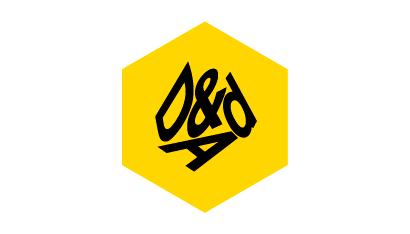Soft skills: what they are and how to develop them
What are soft skills and how might they help your success at work? Read on to discover the most valuable professional soft skills and what you can do to improve yours.

What are soft skills?
Soft skills are the personality traits, behaviours, and interpersonal skills that we use to interact with other people. In the workplace, they represent our ability to work effectively and harmoniously with others, and it’s for this reason they are exactly the type of skills that employers look for.
While traditional workplace skills in areas like business and management are important, soft skills, while often overlooked, are crucial to career progression. According to the Society of Human Resource Management’s (SHRM) 2021-22 State of the Workplace report, 77% of HR professionals said that improving employees’ soft skills was key to their organisations’ future plans.
Soft skills are not usually tied to specific professions, rather they relate to our personalities and, as such, they are highly transferable skills. Although they are less tangible than hard skills they can still be learned and developed, and employers will value any qualifications you have that demonstrate a willingness to improve them.
Some fundamental soft skills for the workplace include creativity, persuasion, emotional intelligence, and collaboration. We’ll look into each in more detail below.
Why are soft skills important?
Soft skills are vital to employers, so much so that a recent survey by LinkedIn found that 92% of talent professionals believe soft skills are equally or more important than hard skills when it comes to hiring the right person for the job. In part, this is due to their versatility.
As well as helping your chances of getting hired, your soft skills will also help you retain employees who work for you. LinkedIn’s 2022 Workplace Learning Report found that managers must have “supercharged” soft skills and that workers at companies that struggle with these are 50% more likely to look for a new job.
Effective communication under high stress, empathising or encouraging a team member who might be struggling, and working collaboratively to meet a deadline are all examples of soft skills that carry the highest importance to any organisation.
Soft skills are also uniquely human. In a workplace and job market changing at high speed because of technological advancement, they are the type of skills that cannot, thus far, be replicated by artificial intelligence (AI). This will only increase their importance in the future.
By understanding what soft skills are and discovering how you can develop your soft skills, you will strengthen your CV or resume, which is especially useful if you’re thinking about changing roles or careers.
To get you started, we’ve put together a list of soft skills below and how you can develop them. We’ve also signposted to relevant soft skills courses you can take for free on FutureLearn.
The most important soft skills
Creativity
The World Economic Forum’s Future Of Jobs report placed creativity in the top five most important skills for the future. In a post-Covid world, creativity is deemed essential in tackling the problems our organisations and economies face. LinkedIn ranked creativity the most valuable business asset out of 50,000 work-based skills! But creativity as a soft skill doesn’t mean you need to be an artist or designer. It’s about learning to think in a creative way and finding innovative solutions to solve problems for your organisation.
As repetitive working tasks are increasingly automated, it’s the creative employee who will be highly valued as they can not only complete the work but also think about how to improve the process itself.
How to be more creative
Learning to approach your work in a more creative, even unorthodox, way is something that you can learn to do.
Simple things like keeping an open mind when confronted with ideas rather than immediately shutting them down, or utilising creative techniques like mind maps, role-playing, or provocations, can be extremely helpful.
With FutureLearn’s partner-led courses taught by diverse academic institutions and organisations, you can learn how to solve everyday problems using creativity to gain a competitive edge in the workplace.
-

 National Yang Ming Chiao Tung University Using Creative Problem SolvingBusiness & Management
National Yang Ming Chiao Tung University Using Creative Problem SolvingBusiness & Management -

 University of Leeds Get Creative with People to Solve ProblemsIT & Computer Science,Creative Arts & Media
University of Leeds Get Creative with People to Solve ProblemsIT & Computer Science,Creative Arts & Media
Communication
Effective communication in the workplace is based on your ability to converse productively with others. If you are able to speak to people clearly and politely, while at the same listening empathetically to what colleagues, customers or clients have to say, you will be more productive and achieve better results.
Successful communication involves verbal, non-verbal and written skills, coupled with an understanding of active listening.
How to improve communication skills
Communications are a key aspect of almost all jobs and are utilised every day, so learning how to communicate effectively is a crucial skill.

You can take steps to improve your communication by focusing on the basics, like simplifying your message or doing a quick check of how your body language might be affecting your communication skills. Plus, make sure you’re fully engaged when you’re listening to others as this will lead them to be more attentive when you’re speaking.
If you feel your interactions with colleagues – from senior directors to your direct reports – could be improved, you should think about taking one of our courses designed to transform your communication skills and teach you how to navigate positive collaboration in the modern workplace. You will find that as well as boosting your personal effectiveness you will reduce your stress levels by gaining a better understanding of work matters and employee issues, simply thanks to your enhanced ability to communicate and absorb information.


Emotional intelligence
Emotional intelligence is your ability to understand and control your own emotions, while at the same time recognising and empathising with the emotions of those around you.
Emotional intelligence in the workplace is a highly sought after soft skill. Being able to harness your own emotions whilst understanding your colleagues’ motivations and feelings will lead to more harmonious and productive relationships.
Emotional intelligence is also a highly prized soft skill in high pressure roles when remaining calm is key, or those that involve negotiation and the need to understand the other side’s position.
How to be more emotionally intelligent
Taking the time to work on your emotional intelligence may seem a little unusual, as many of the key facets, such as empathy or self-awareness can seem like innate qualities. However, these are all skills that can be developed with the right training.
For example, think of a workplace situation where your emotions may have worked against you, and think about how this affected the outcome. Use that as a starting position for developing your self-awareness, which is the first step to improving emotional intelligence.
Discover why emotional intelligence is such an important workplace skill with one of our world-class short courses, and learn how it can be used to resolve conflict and build better relationships.
Another great option might be the Emotional Intelligence in Practice course by Big Think, where you’ll discover techniques to develop your emotional intelligence.




Critical Thinking
Critical thinking is the ability to reason and analyse information effectively. In the workplace, critical thinking involves the process of taking information or problems and processing them in the most logical way to extract value and find solutions.
It’s a highly valued soft skill, in part because it works so well in tandem with other soft skills. For example, if you have strong critical thinking skills, it will improve your time management because you can solve problems quicker.
How to improve critical thinking
Being able to demonstrate situations where you have employed critical thinking to employers is a valuable asset. The first step to thinking more critically is to consider thoroughly the information you’re presented with.
Ask questions, explore motivations on all sides, and don’t take anything at face value. By rigorously evaluating information, you’ll be better placed to make informed decisions, which is the essence of critical thinking.
Improve and develop your logical and critical thinking skills with a FutureLearn short course and demonstrate to employers that you understand the key concepts of the subject.
For example, our Critical and Strategic Thinking in Practice course by Big Think will teach you to solve complex problems with strategic thinking.


Adaptability
Adaptability, or flexibility, is the ability to embrace change and challenges with a positive, resourceful attitude.

We all face unexpected problems in the workplace, but those with strong adaptability skills are able to approach these calmly and find solutions quicker than those who might be less flexible.
Also, as the modern workplace is constantly evolving, having a level of resilience to these changes and an ability to view them as opportunities rather than obstacles is an attractive asset to employers.
How to improve your adaptability
Adaptability means being resourceful, curious, and persistent. Learning how to add this to your own skill set takes practice but it’s worth the effort.
Try studying colleagues who you perceive as being especially flexible or whose workplace attitude you’d like to replicate. You could take notes on their behaviours or ask them directly for guidance.
If you’re facing a particularly difficult challenge, try and find the positives – there will usually be some, even if it’s just the opportunity to show how you’ve overcome a problem.
Discover how to boost your adaptability and resilience in the workplace on an expert-led online course.




Collaboration
Collaboration, also known as teamwork, is the ability to work effectively with your colleagues. It encompasses and requires a variety of other important soft skills, such as emotional intelligence, adaptability, and communication.
Working collaboratively means you can solve problems quicker and better understand your own strengths and weaknesses. Working together also fosters a healthy work environment of learning and sharing between colleagues.
How to work more collaboratively
Working together with others towards a common goal is a crucial and common aspect of many roles, so being able to do it effectively is a skill worth investing in.
Learning how to work more collaboratively first requires a self-analysis of where you feel you work well in a team and where you think you could improve.
Next time you find yourself in a collaborative working situation, try and take on a role you’re not used to. This will help you develop a full spectrum of collaborative working skills.
Learn how to work effectively and collaboratively with your team, whether you’re at home or on the other side of the world, with FutureLearn’s career-enhancing courses.
Browse our full list of soft skills courses







